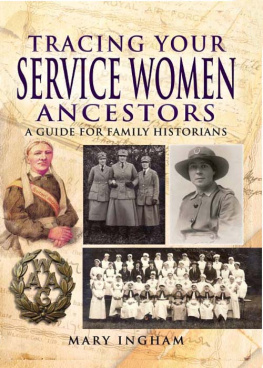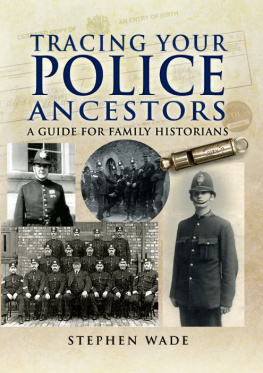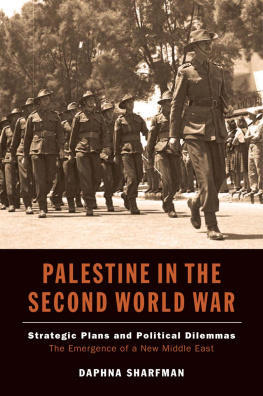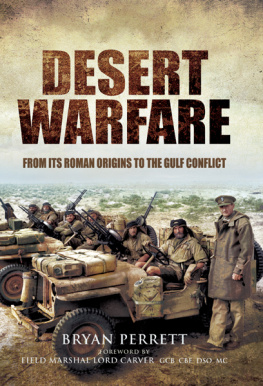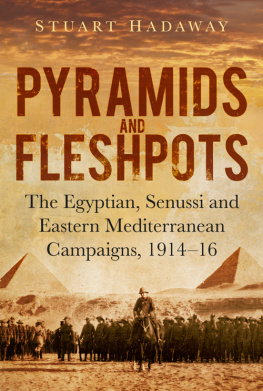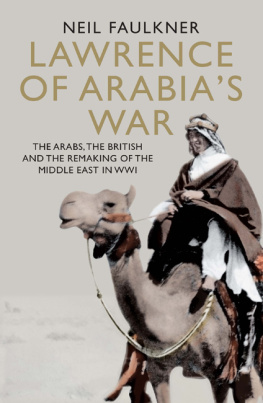
TRACING YOUR
GREAT WAR ANCESTORS
The Egypt and Palestine
Campaigns
FAMILY HISTORY FROM PEN & SWORD
Tracing Secret Service Ancestors
Tracing Your Air Force Ancestors
Tracing Your Ancestors
Tracing Your Ancestors from 1066 to 1837
Tracing Your Ancestors Through
Death Records
Tracing Your Ancestors Through
Family Photographs
Tracing Your Ancestors Using the Census
Tracing Your Ancestors Childhood
Tracing Your Ancestors Parish Records
Tracing Your Aristocratic Ancestors
Tracing Your Army Ancestors 2nd Edition
Tracing Your Birmingham Ancestors
Tracing Your Black Country Ancestors
Tracing Your British Indian Ancestors
Tracing Your Canal Ancestors
Tracing Your Channel Islands Ancestors
Tracing Your Coalmining Ancestors
Tracing Your Criminal Ancestors
Tracing Your East Anglian Ancestors
Tracing Your East End Ancestors
Tracing Your Edinburgh Ancestors
Tracing Your First World War Ancestors
Tracing Your Great War Ancestors:
The Gallipoli Campaign
Tracing Your Great War Ancestors: The Somme
Tracing Your Great War Ancestors: Ypres
Tracing Your Huguenot Ancestors
Tracing Your Jewish Ancestors
Tracing Your Labour Movement Ancestors
Tracing Your Lancashire Ancestors
Tracing Your Leeds Ancestors
Tracing Your Legal Ancestors
Tracing Your Liverpool Ancestors
Tracing Your London Ancestors
Tracing Your Medical Ancestors
Tracing Your Merchant Navy Ancestors
Tracing Your Naval Ancestors
Tracing Your Northern Ancestors
Tracing Your Pauper Ancestors
Tracing Your Police Ancestors
Tracing Your Prisoner of War Ancestors:
The First World War
Tracing Your Railway Ancestors
Tracing Your Royal Marine Ancestors
Tracing Your Rural Ancestors
Tracing Your Scottish Ancestors
Tracing Your Second World War Ancestors
Tracing Your Servant Ancestors
Tracing Your Service Women Ancestors
Tracing Your Shipbuilding Ancestors
Tracing Your Tank Ancestors
Tracing Your Textile Ancestors
Tracing Your Trade and Craftsmen Ancestors
Tracing Your Welsh Ancestors
Tracing Your West Country Ancestors
Tracing Your Yorkshire Ancestors
TRACING YOUR GREAT WAR ANCESTORS
The Egypt and Palestine Campaigns
A Guide for Family Historians
Stuart Hadaway
First published in Great Britain in 2017
PEN & SWORD FAMILY HISTORY
an imprint of
Pen & Sword Books Ltd
47 Church Street
Barnsley
South Yorkshire
S70 2AS
Copyright Stuart Hadaway, 2017
ISBN 978 147389 725 0
eISBN 978 147389 727 4
Mobi ISBN 978 147389 726 7
The right of Stuart Hadaway to be identified as Author of the Work has been asserted by him in accordance with the Copyright, Designs and Patents Act 1988.
A CIP catalogue record for this book is available from the British Library.
All rights reserved. No part of this book may be reproduced or transmitted in any form or by any means, electronic or mechanical including photocopying, recording or by any information storage and retrieval system, without permission from the Publisher in writing.
Pen & Sword Books Ltd incorporates the imprints of Pen & Sword Archaeology, Atlas, Aviation, Battleground, Discovery, Family History, History, Maritime, Military, Naval, Politics, Railways, Select, Social History, Transport, True Crime, Claymore Press, Frontline Books, Leo Cooper, Praetorian Press, Remember When, Seaforth Publishing and Wharncliffe.
For a complete list of Pen & Sword titles please contact
PEN & SWORD BOOKS LTD
47 Church Street, Barnsley, South Yorkshire, S70 2AS, England
E-mail:
Website: www.pen-and-sword.co.uk
ACKNOWLEDGEMENTS
My thanks go to Nina, for her usual support and patience, Dave Buttery for his map and assistance, and to Rupert Harding and Alison Miles at Pen & Sword. I would also like to thank David Tattersfield of the Western Front Association for his help and advice.
I would especially like to thank Graham Caldwell for his support and his characteristically uninhibited sharing of his extensive knowledge and expertise. Graham could easily be described as the Sherlock Holmes of First World War soldiers records, and it is a rare case where he is not able to wrinkle out his man. He has kindly agreed that I can share his details here, and if you ever really hit a brick wall in your research, you can do no better than contact Graham for advice at: .
INTRODUCTION
If you ask most people about the First World War in the Middle East, they will mention either Lawrence of Arabia or Gallipoli. These two events are often misrepresented in themselves the first as a blaze of adventure and glamour totally removed from the slaughter of the Western Front and the second as a tragic baptism of fire that is used, particularly by the Australians and New Zealanders, as a short-hand for youth and optimism being destroyed by incompetent generals. Both are equally misrepresentative when it comes to the war in the Middle East as a whole.
It is all too easy, especially given post-war events, to see the actions of the British Empire and other Allied nations in the Middle East as a grand, imperial land grab with little relevance to the wider war. The war in Egypt and Palestine was far from the main fight against Germany on the Western Front, and seems to bear little direct relevance to it. Instead, the fighting in Palestine and Syria led to the British and French in particular gaining control of this entire region as the Ottoman Empire was dissolved, dividing the land between them to their own best advantage.
But this view misses what a crucial campaign this was to the global war effort. There were several important strategic factors that made fighting in Egypt and Palestine important. One was the need to put pressure on Germanys weakest ally, the Ottoman Empire. Knocking them out of the war would be a material as well as a propaganda victory against the Germans, opening routes to attack another of Germanys allies, the Austro-Hungarian Empire, through the Balkans. It would also meet another strategic need, to ease the pressure on Russia and open a direct, year-round line of communication with that country.

Map of the Egypt and Palestine theatre.
But the greatest strategic concern was the safety of the Suez Canal. Through the Canal flowed raw materials vital to the Allied war effort feeding not only British war production, but also French and Italian too. This was also the shortest way to France for hundreds of thousands of troops from India, Australia and New Zealand. While ships could of course go around Africa, this took weeks longer. As the war progressed, not only did war production increase, but the shipping available decreased as losses mounted from the German submarine campaign. The faster a ship could reach port and unload, the faster it could be turned around and sent out for another cargo, and of course the faster those raw materials could reach the factories, making sure production levels met the ever increasing demands.
The Ottomans made several attempts to cut the Suez Canal in 1915 and 1916, and the great British offensive into Palestine in late 1917 forestalled another. However, large set-piece battles were fairly infrequent for the Egyptian Expeditionary Force (EEF), Britains army in the theatre. Generally the tempo of operations was much lower in Egypt and Palestine than in France. However, the enemy, usually referred to a Johnny Turk or Abdul, was a tough soldier and could be a formidable fighter. Coupled with the extensive problems of even existing in the conditions that prevailed in the theatre, this made campaigning in Egypt, Palestine and later Syria hard and dangerous work.

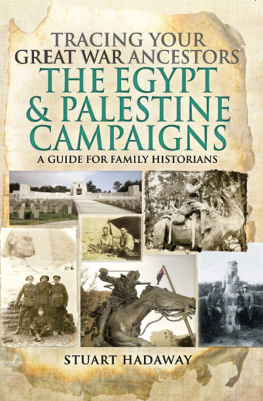
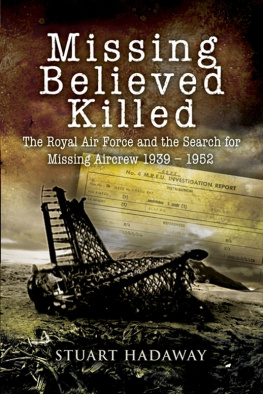

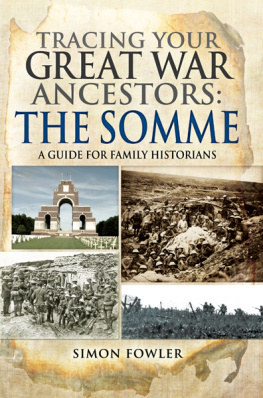
![Lt Col C. G. Powles - THE NEW ZEALANDERS IN SINAI AND PALESTINE [Illustrated Edition]](/uploads/posts/book/399129/thumbs/lt-col-c-g-powles-the-new-zealanders-in-sinai.jpg)
